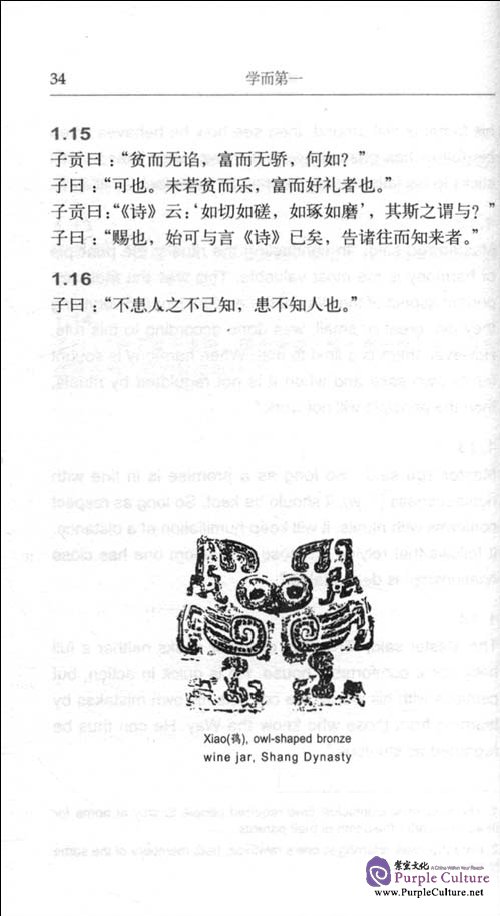Sample Pages Preview

1, Junzi (君子) literally means "son of the ruler', and therefore refers to a member of the aristocracy. In The Analects, the term was used by Confucius to describe his ideal person, the type who through self-improvement, becomes superior in ethics, gains peace of mind and there- fore is fit to govern. To Confucius, people of low social ranks but willing to study and improve themselves can become junzi, whereas those scholars who are morally unfit cannot, thus giving the term strong ethical implications. Junzi has been translated as gentleman, but he is not the gentleman as used in today's English. In the present translation, I am using a "man of honor' to emphasize the difference and denote its ethical character.
2, Xiaoren (小人) literally means the common people, but Confucius used it mostly to refer to those who had petty interest in mind. In this translation, I am using "petty minded people", and only occasionally "petty people" Here again, "petty-mindedness" has an ethical implication.
3, Shi (士) refers to the lowest echelon of the aristocracy. With their knowledge, they could become officials when they enjoyed the appreciation of the rulers. But then, the majority would retain their original status. Here I am following the traditional English rendition "scholar' to simplify matters.
